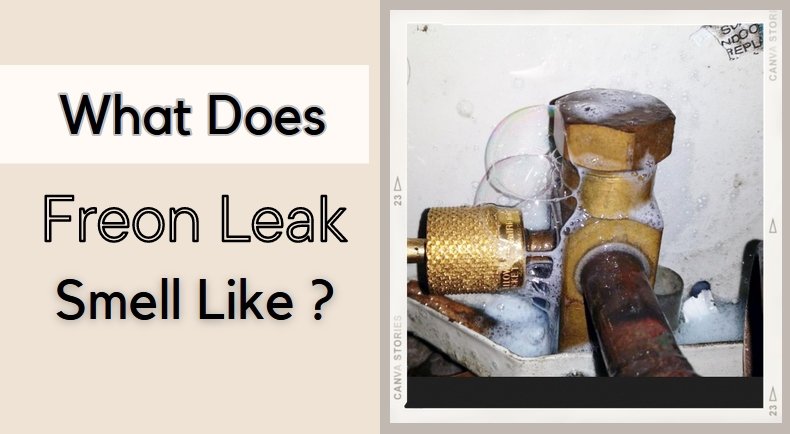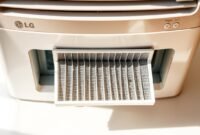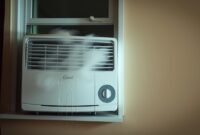Air conditioning systems can hide dangerous secrets. A Freon leak might seem harmless, but it can create serious problems for your home and health. Most homeowners don’t realize their AC is leaking until significant damage occurs.
Strange odors, unexplained health symptoms, and reduced cooling performance could signal a critical refrigerant issue. This issue demands immediate attention.
I’ve learned through experience that understanding what a Freon leak smells like can save you from costly repairs and health risks. This guide will walk you through identifying, handling, and preventing Freon leaks in your air conditioning system. Get ready to become an expert in detecting these silent threats before they escalate.

Understanding Freon and Its Role in Air Conditioning Systems
Freon is key to keeping our spaces cool and comfy. It’s a refrigerant that works hard to control temperature and humidity. Knowing how it works helps us spot leaks early.
The cooling process is quite interesting. It’s a scientific dance of heat transfer. Here’s how Freon works its magic:
- The compressor pressurizes the refrigerant gas
- Heated gas moves through the condenser, cooling down
- Cooled gas enters the evaporator, absorbing indoor heat
- Warm air is transformed into cool, refreshing atmosphere
Read also: Does Freon Leak When AC is Off?
Common Applications of Freon
Freon isn’t just for air conditioners. It’s also found in:
- Residential air conditioning units
- Commercial refrigeration equipment
- Industrial cooling systems
- Automotive air conditioning
Types of Refrigerants in Modern Systems
Today’s cooling tech has changed. Modern refrigerants are better for the environment. If you think there’s a leak, get a pro who knows these new options.
Modern refrigerants like R-410A and R-32 are more efficient and green. They’re better than old Freon types.
What Does a Freon Leak Smell Like
Spotting a Freon leak can be hard. Freon doesn’t have a strong smell like many gases. But, there are signs to look for when you notice an ac gas leak smell.
People often say a Freon leak smells like a sweet chemical. This smell is similar to:
- A sweet, almost sugary chemical scent
- Something similar to chloroform
- A faint, sharp smell like car coolant
The smell’s strength can change. A small leak might just hint at something odd. But a big leak can make the smell stronger. You might notice it near your air conditioner or vents.
Not all Freon leaks smell. Modern refrigerants are made to be mostly odorless. If you think there’s a leak, look for other signs too. Like if your AC isn’t cooling as well or if there’s ice on it.
Experts say to act fast if you smell something odd near your AC. A refrigerant leak needs a pro to check it out. This is to keep you safe and your AC working right.
Signs of a Refrigerant Leak in Your Home
Spotting refrigerant leaks early can save you money and health risks. As an HVAC pro, I’ve seen many cases where quick action prevented big problems.
Knowing the signs of a refrigerant leak is key to keeping your cooling system working well and safely.
Read also: Window Air Conditioner Smells Like Chemicals
Visual Indicators to Watch For
Look out for these visual signs of freon leaks:
- Oily residue around AC unit connections
- Frost or ice buildup on refrigerant lines
- Visible damage to refrigeration components
- Corrosion or rust on refrigerant pipes
Performance Issues Signaling Possible Leaks
Odors from R-22 and performance issues can mean a leak. Watch for these signs:
- Reduced cooling efficiency
- Longer cooling cycles
- Warm air blowing from vents
- Increased energy bills
Temperature Inconsistencies
Uneven cooling in your home might mean a leak. If some rooms are much warmer or cooler, check for system problems.
Getting a pro to inspect is the best way to find and fix refrigerant leaks. Don’t ignore these signs to protect your system and family’s safety.
Health Risks Associated with Freon Exposure

Understanding the health risks of a coolant leak smell is key for homeowners. Freon exposure can be dangerous, depending on how much and for how long. Even small amounts can be risky if you’re exposed for a long time.
The signs of Freon exposure can vary. What does a freon leak smell like? It often smells sweet, like chloroform, and might be hard to notice at first. Short-term exposure can cause mild symptoms like:
- Dizziness
- Headaches
- Nausea
- Difficulty breathing
Long-term or high-level exposure can be more serious. The refrigerant can take up oxygen in closed spaces, leading to bigger risks. People with breathing or heart problems are at higher risk.
If you think there’s a Freon leak, act fast. Open windows, stay away from it, and call a pro HVAC tech to fix it. Your health and safety should always come first when dealing with refrigerant leaks.
While not all Freon leaks are deadly, they shouldn’t be ignored. Quick action and expert help can stop health problems and keep your home safe.
Common Causes of Refrigerant Leaks
Knowing why your AC leaks is key to keeping it running well. Leaks can happen in many ways, each with its own set of problems for homeowners and HVAC experts.
- Age-Related Wear and Tear
- Physical Damage to Components
- Poor Installation or Maintenance
Age-Related Deterioration
As AC systems get older, parts start to wear out. Rubber seals, copper lines, and connections get brittle and crack. These small cracks can let refrigerant leak out, hurting your system’s cooling power.
Physical Component Damage
Things outside can also cause leaks. Accidents, vibrations, corrosion, and weather stress can damage refrigerant lines. Even things like landscaping equipment, hail, or nearby construction can harm your AC.
Installation and Maintenance Challenges
Bad installation or upkeep can lead to leaks. Wrong connections, the wrong pipe size, or poor brazing can let refrigerant escape. Getting regular checks from pros can catch and fix these problems early.
How to Detect a Freon Leak Using Professional Tools
Identifying freon leaks is easier with professional tools. As an HVAC expert, I’ve seen how these tools make a big difference. They help find coolant leak smells accurately.
Technicians use several advanced tools to find refrigerant leaks:
- Electronic Leak Detectors: These devices can spot even the smallest freon traces.
- UV Dye Detection Systems: Technicians add fluorescent dye to find leak spots.
- Infrared Cameras: These cameras use thermal imaging to find temperature changes that show leaks.
The RLD380L Refrigerant Leak Detector is a top choice. It’s very sensitive and helps find leaks fast in complex systems. I highly recommend it for its accuracy and reliability.
Professional leak detection is more than just smelling for leaks. These tools give exact locations, how bad the leak is, and detailed analysis. While DIY methods can help, nothing beats the skill and tech of certified HVAC pros.
Choosing professional leak detection saves time, money, and health risks from undetected leaks.
The Importance of Professional Leak Detection Services
Repairing a leak in your air conditioning system is serious business. I’ve seen many AC repair cases. It’s vital to hire a pro for ac gas leak smell issues.
Professional leak detection services do more than DIY fixes. They use special tools and knowledge to find and fix refrigerant problems.
Benefits of Expert Diagnosis
- Precise identification of leak sources
- Advanced diagnostic equipment
- Comprehensive system evaluation
- Detailed repair recommendations
- Safety-focused approach
Cost Implications of Professional Services
Hiring a pro might seem pricey at first. But, it can save you a lot of money later. DIY fixes often miss important problems, leading to bigger and more expensive repairs.
| Service Type | Average Cost | Potential Long-Term Savings |
|---|---|---|
| DIY Repair | $50-$200 | Limited |
| Professional Service | $250-$800 | Significant |
I always suggest getting professional leak detection. Their skills ensure your AC works well, safely, and without surprises.
Steps to Take When You Suspect a Freon Leak
Spotting refrigerant leaks can be scary. If you think there’s a freon leak at home, act fast. The smell of freon, sweet and chemical-like, is a warning sign.
Read also: 3 Tips on How to Check for Freon Leak in Home AC
Here are the key steps to take if you suspect a freon leak:
- Ventilate the Area
- Open windows and doors
- Create cross-ventilation to disperse refrigerant gases
- Make sure everyone gets out of the area
- Shut Down Your AC System
- Turn off the air conditioning unit
- Disconnect power at the circuit breaker for safety
- Contact Professional HVAC Technicians
- Call certified refrigerant leak detection experts
- Tell them about the freon smell in your home
- Ask for an immediate check
Don’t try to fix or refill the system yourself. Handling refrigerant needs special training and tools. Experts can find and fix leaks safely, keeping you and your system safe.
Acting fast on refrigerant leaks can stop bigger problems. It keeps your home safe and comfortable.
Prevention Tips to Avoid Future Refrigerant Leaks
To keep your air conditioning system safe from Freon leaks, you need to take action. By following a few simple steps, you can avoid expensive repairs and system failures.
Stopping refrigerant leaks starts with knowing the right steps. These steps will keep your cooling system running well and lasting longer.
Creating a Robust Maintenance Schedule
It’s smart to set up a detailed maintenance plan for your air conditioning. Regular checks by professionals can spot problems early:
- Schedule professional HVAC inspections twice a year
- Clean or replace air filters monthly
- Check refrigerant levels annually
- Inspect external unit for signs of wear or damage
Strategic System Upgrades
If you’re always fixing leaks, it might be time for a new system. New air conditioning units are more efficient and need less upkeep.
When thinking about a new system, consider these points:
- Age of current system (typically 10-15 years)
- How often you need repairs
- Energy efficiency ratings
- New technology
While some tasks can be done yourself, it’s best to get a pro for complex repairs. Certified technicians can find and fix leaks well.
Preventative care extends your system’s life and keeps it running smoothly. It also saves energy.
Environmental Impact of Freon Leaks

Protecting our planet is key, and knowing about r-22 refrigerant odor is important. Freon leaks are more than just a home problem. They are a big threat to our planet.
The smell from coolant leaks isn’t just bad. It warns of a big environmental problem. Refrigerants like Freon harm the ozone layer and cause global warming. A small leak can harm as much as driving a car for months.
- Ozone Layer Destruction: Chlorofluorocarbons (CFCs) in Freon directly damage the protective ozone layer
- Global Warming: Refrigerants trap heat very well
- Long-Term Damage: AC gas leaks can harm the environment for a long time
International agreements are pushing for big changes. The Montreal Protocol is a key treaty. It helps get rid of harmful refrigerants and promotes green alternatives.
Today’s refrigeration systems use eco-friendly refrigerants. These new options cut down on greenhouse gases. They help keep our atmosphere balanced.
Legal Requirements and Regulations for Freon Handling
Handling Freon can be tricky for homeowners and air conditioning experts. The U.S. has strict rules to protect the environment and public health. These rules cover how refrigerants are managed, stored, and thrown away.
It’s key to know the legal rules when fixing your air conditioner’s leak. The Environmental Protection Agency (EPA) has set clear guidelines. These rules affect how refrigerants are handled and disposed of.
- Technicians must be EPA-certified to handle refrigerants
- Proper documentation is required for refrigerant purchases
- Illegal venting of refrigerants carries significant penalties
If your air conditioner is old, you should get a pro who knows the latest rules. The Clean Air Act makes it illegal to release refrigerants into the air. This means special recovery and disposal steps are needed.
Important rules include:
- Mandatory certification for HVAC technicians
- Strict guidelines for refrigerant recovery
- Phaseout of ozone-depleting refrigerants
Following these rules isn’t just to avoid fines. It’s about keeping our planet safe and making sure air conditioners work right. Experts keep up with these rules to offer the best service.
Conclusion
Spotting Freon leaks is key to keeping your home cool and safe. The dangers of refrigerant leaks mean you must be careful and quick to act. If you smell that sweet, chemical smell, call a pro right away.
Wondering what a Freon leak smells like is important. It’s a warning you shouldn’t ignore. HVAC experts have the skills and tools to fix leaks safely. Trying to fix it yourself can be risky and costly.
Prevention and quick action are vital. Regular checks, knowing leak signs, and using certified pros protect your home and health. Always choose expert help and thorough system care for your AC.
Your air conditioning is a big deal, and it needs care. Knowing what to do and acting fast keeps your home cool and safe. Stay informed and get help when needed for a great home environment.


